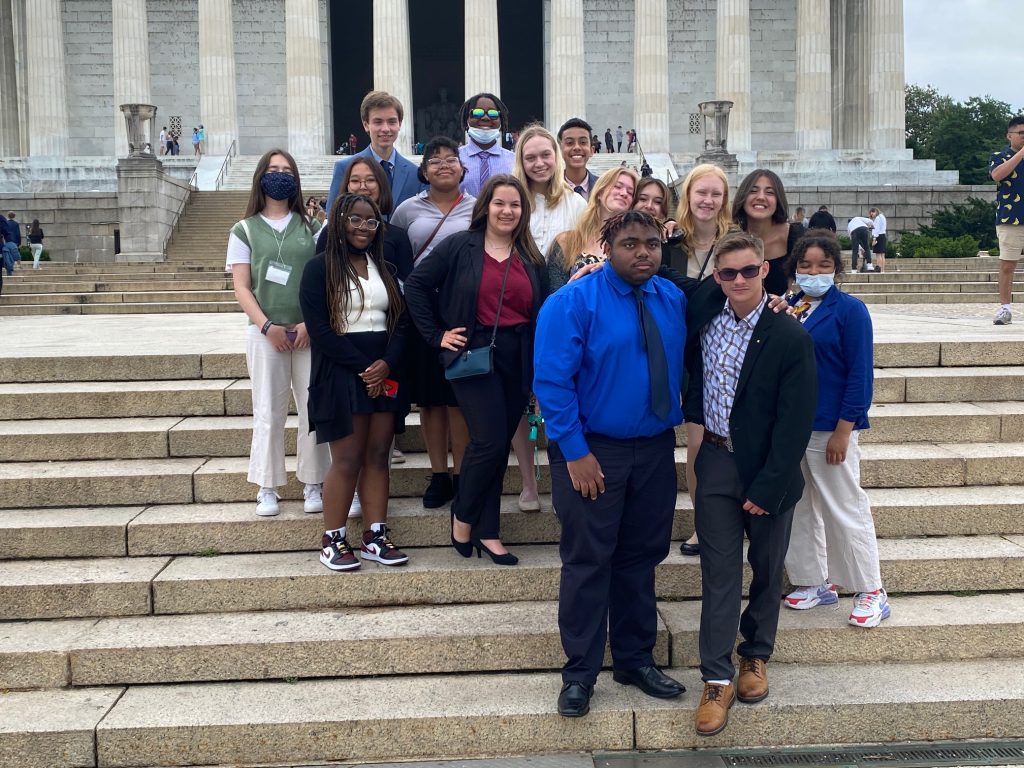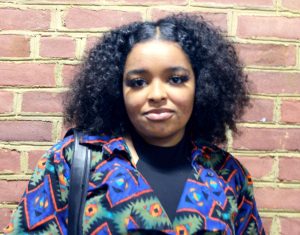
by Maya Matambanadzo, 2023 Luminari Intern

At Luminari’s I Want to be an Ambassador! camp, I was able to learn many different skills and improve my world consciousness with presentations from numerous guests, professionals and ambassadors who came to speak with us. I ended up attending the camp for two consecutive years and will be returning for a third time this summer as an intern. I felt the camp gave me so many opportunities to grow and network with people my age who want to change the world. This program is a great way to spend two weeks of the summer and even though we had a busy schedule, I never felt bored or overwhelmed.
The speakers who presented were very insightful and had a great deal of first-hand experience to share with us. I remember the first year I attended, I was introduced to different countries’ customs and cuisine, gastrodiplomacy, important historical moments, cultural intelligence, and crisis management. There were quite a few fun activities and exercises too. One of the activities I loved the most was learning about the culture of Barbados through its food and people. Ms. Toni Simpson, who is from Barbados and studied at Chatham University, prepared a cooking demonstration of traditional Barbados cuisine. I’d never had food from Barbados before and found it to be delicious.
In addition to all the fun activities, the presentations and panels were so interesting. I think I looked forward to them more than the games and group exercises. One presenter came to talk about the inclusion of people with physical disabilities in public infrastructure. In order to illustrate the concept of superficial disability inclusion, she used an example of a ramp leading into a pool as a marker for inclusion. A person who needs the ramp, for example someone in a wheelchair, might be able to get into the pool, but can they actually participate in the activity? Are they able to swim in the pool or play in the pool or are they meant to just sit in the corner of that pool near the ramp? That is not truly an inclusive activity. To this day, I view infrastructure differently and see many issues with the way disability inclusion is presented in most public spaces. It’s an issue I’d never thought of before. To me, inclusion used to be a ramp next to a stairway, but there is much more to inclusion.
We often forget to actively seek out experiences other than our own, and when we do, we typically come up with superficial solutions instead of focusing on actually improving the experiences of others. It’s important to acknowledge your own ignorance and actively change whatever false pretense you had once you realize. What this presenter, and this camp, has really taught me throughout the two years is to actively listen to the experiences of others and not assume what I can do to make it better, but to just stop and listen. We must actively practice empathy. We must actively practice kindness and understanding. While this may seem obvious, it is something that must be practiced. You cannot allow improvement and inclusivity to be something floating around in the back of your mind, but you must strive for it daily. If there is one thing I took from my experience at the Ambassador Camp is a mindset of hearing others’ struggles and sympathizing with them, but not assuming.
***

